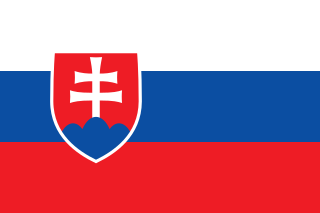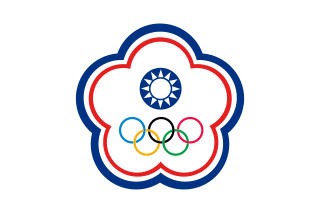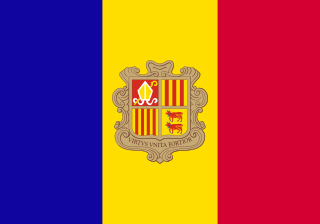
The United States sent 204 athletes to the 2006 Winter Olympics in Turin, Italy. Chris Witty, a four-time Olympian, who competed in both Summer and Winter games, and won a gold medal in speed skating at the 2002 Games, served as the flag bearer at the opening ceremonies. Speed skater Joey Cheek, who won gold in the 500 m and silver in the 1000 m, was the flag bearer at the closing ceremonies. One athlete, Sarah Konrad, became the first American woman to compete in two different disciplines at the same Winter Olympics – biathlon and cross-country skiing.

Australia first competed in the Winter Olympic Games in 1936 in Garmisch-Partenkirchen, and has participated in every games since, with the exception of the 1948 Games in St. Moritz.

Australia competed at the 2006 Winter Olympics in Turin, Italy. The team of 40 athletes was the largest ever for Australia, surpassing the team of 31 that participated at the 1960 Winter Olympics.

New Zealand competed at the 2006 Winter Olympics in Turin, Italy.

Sweden sent 112 athletes to the 2006 Winter Olympics in Turin trying to win their first gold medal since the 1994 Olympics in Lillehammer. A total of 99 athletes were selected, and they competed in nine of the fifteen Winter Olympic sports. When the medals were summed up, Sweden had managed seven gold medals, two silver and five bronze, making it Sweden's best result ever in the Winter Olympics in terms of both medals and gold medals earned, and gave Sweden a 6th place in the medal table.

Switzerland competed at the 2006 Winter Olympics in Turin, Italy. This was the confederation's largest Winter Olympics team ever, because two ice hockey teams qualified.

Isabel Clark Ribeiro, a snowboarder, carried the flag at the opening ceremonies. Clark is also the Brazilian athlete who achieved the best result in the Brazilian delegation, making it to the quarterfinals in women's snowboard cross, finishing ninth overall.

Albania sent a delegation to compete at the 2006 Winter Olympics in Turin, Italy between 10–26 February 2006. This was the nation's first appearance at a Winter Olympic Games, having previously participated several times in the Summer Olympics. The delegation consisted of one alpine skier, Erjon Tola, who competed in three events. His best finish was 35th in the giant slalom.

India sent a delegation to compete at the 2006 Winter Olympics in Turin, Italy from 10–26 February 2006. This was the nation's seventh appearance in a Winter Olympic Games. The Indian delegation consisted of four athletes, two in alpine skiing, one in cross-country skiing, and one in luge. Their best performance in any event was 25th by luger Shiva Keshavan in the men's singles.

Slovakia competed at the 2006 Winter Olympics in Turin, Italy.

Serbia and Montenegro competed at the 2006 Winter Olympics in Turin, Italy. This was the last appearance of a team representing a joint Montenegrin and Serbian state at the Olympic venue.

Spain competed at the 2006 Winter Olympics in Turin, Italy.

Chinese Taipei sent a delegation to compete at the 2006 Winter Olympics in Turin, Italy from 10–26 February 2006. Although the nation is known as Taiwan or the Republic of China, the International Olympic Committee mandates that the Chinese Taipei Olympic Committee flag and name is used, and not the flag of Taiwan, as per the Nagoya Resolution. This was Chinese Taipei's seventh time participating in the Winter Olympic Games. The Chinese Taipei delegation consisted of a single athlete, luger Ma Chih-hung. He finished 28th in the men's singles.

The men's halfpipe event in snowboarding at the 2006 Winter Olympics was held in Bardonecchia, a village in the Province of Turin, Italy. The competition took place on 12 February 2006.

Paralympic alpine skiing is an adaptation of alpine skiing for athletes with a disability. The sport evolved from the efforts of disabled veterans in Germany and Austria during and after the Second World War. The sport is governed by the International Paralympic Committee Sports Committee. The primary equipment used includes outrigger skis, sit-skis, and mono-skis. Para-alpine skiing disciplines include the downhill, super-G, giant slalom, slalom, super combined, and snowboard.

Slovenia competed at the 2006 Winter Olympics in Turin, Italy.

The women's parallel giant slalom event in snowboarding at the 2006 Winter Olympics was held in Bardonecchia, a village in the Province of Turin, Italy. The competition took place on 23 February 2006.

The women's snowboard cross event in snowboarding at the 2006 Winter Olympics was held in Bardonecchia, a village in the Province of Turin, Italy. Competition took place on 17 February 2006.

Andorra sent a delegation to compete in the 2010 Winter Olympics held in Vancouver, British Columbia, Canada, from 12 to 28 February 2010. Andorra has never won an Olympic medal, despite appearing at every Winter and Summer Games since 1976. The Andorran delegation to these Olympics consisted of six athletes, four in alpine skiing, one in cross-country skiing, and one in snowboarding, the last being Lluís Marin Tarroch, the first snowboarder to represent Andorra at the Olympics. He placed 34th in his only event, and failed to advance to the quarterfinals as a result. Francesc Soulié, the first Andorran cross-country skier to compete at the Games, made his second Olympics appearance, achieving a 47th place finish in the best of his three events. The four alpine skiers that competed recorded six DNFs in their thirteen combined events, though Mireia Gutiérrez recorded a team-high 24th-place result in her best event.

The Netherlands sent a delegation to compete at the 2014 Winter Paralympics in Sochi, Russia, held between 7–16 March 2014. The Netherlands delegation consisted of seven competitors, all of which were competing in sports under the alpine skiing banner. Bibian Mentel won the nation's only medal at these Paralympics, a gold in women's snowboard cross. With one gold medal, the Netherlands ranked a joint 14th place on the medal table with Switzerland.



















